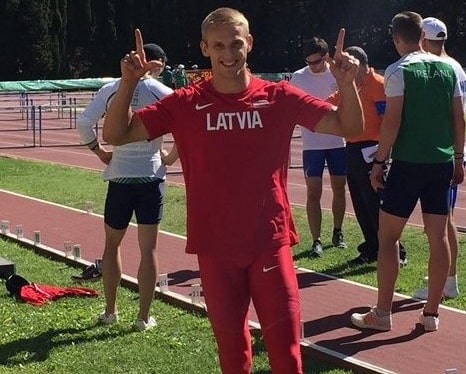Why Decathlon?

It’s a question many have asked over the last hundred years? “Why would you choose to train and compete in ten events, if you can choose to specialize in one or two events?” The answer to this question might be individual to every decathlete but the common factors remain the same.
Is it because decathletes cannot be great at one event, and they are “jacks of all trades and masters of none”? Nope. Many world class decathletes could fight for medals in certain individual events if they wanted to. Decathletes are no leftovers, they are often the most physically gifted and mentally prepared specimens in the track arena. They are, arguably, the most underappreciated and overlooked but deserve the most attention for the challenges they have to overcome.
What are the common factors that draw many young athletes to this grueling sport?
Challenge
In the history of humankind, people have always been attracted to the unexplored, unreached and uninvestigated territories. Humans are curious beings that have a deep, hidden desire to achieve and conquer. The bigger the challenge, the larger the victory.
Decathlon is a game. However, it is not just some game. It is a beautiful game that tests physique, mind, and soul of a man like little else does in this world. It is a test of challenges that teach a man to build walls between the events of life, as well as fight demons of fear, doubt, pain, and uncertainty.
Young men are attracted to challenges, and only the bravest dear to face the adversity of such a sport that entails a little bit of everything. Decathlon is the most contradictory event of all in track and field. A decathlete must be extremely versatile to be able to sprint fast, jump as far and high as possible, throw three different implements as far as heavenly possible, and on top of nine events, run a grueling 1500m race. Some events are complementary, but some are totally contradictory. Even coaches often don’t dare to take on the challenge to train a decathlete because they know it’s a lifestyle rather than just a discipline.
“The greatest athlete in the world” title that is given to the Olympic decathlon champion also captures a man’s heart in the pursuit of excellence. It is the ultimate athletic title that a man can reach. Often it has been said that this challenge chooses you, instead of you choosing it.
Comradery
Decathletes are fierce competitors. They are battling against each other, often in challenging conditions over two day period. From early in the morning, sometimes, until late in the night. There is a good side effect that comes out of this shoulder to shoulder two-day marathon. The side effect that is being produced is called - comradery.
How can one not have any compassion and understanding for another man who has walked through countless of hours of running, conditioning work, injury recovery, technique work, mental training and other sacrifices that contain the decathlon training? Even the rudest decathletes deep down understand that the decathlon is not easy for any serious competitor. Comradery grants respect, support, encouragement, wisdom, and other virtues that are being shared between the decathlon family, no matter the languages and country borders.
It’s been said - that something special happens when you share a meal with your enemy. In a sense, decathlon competition is a war, however, the biggest obstacle each solder is facing here is himself within the playground of the decathlon scoring table, rather than the other competitor. You against the tape measure and the stopwatch. No wonder why decathlon is the only discipline in track and field where athletes run a traditional victory lap together after the two-day competition. Even the most fierce and the least emotional decathletes will hug and shake hands after the last race of the event. This comradery often produces life lasting friendships as no other sport does.
Commitment
No one is born to be the world’s greatest athlete. Decathlon requires commitment and trust in the process. Once you enter it, you must count on long years of cumulative training effect over time. It truly is a mental game. The longer you stay, the more you realize that it is a game for the tough, and not the weak. Decathlon obligates perseverance and willingness to finish what you started. How else a man can become great at ten different things if not through feeling-independent commitment and will to show up again, and again and again?
Hope
Decathlon is a blessing and a curse of inescapable hope that things can always be improved. And things can be improved. There is always hope for the close-to-perfect decathlon one day when everything seems in alignment, not flawless but close enough to great.
Decathlon is two days of chaos. Many unexpected things can happen during the two days of competition, including bad referee decisions, bad weather, blisters, scratches, bruises, and falls. Each event brings some level of doubt and uncertainty that must be faced head-on. Through this all, hope remains that the next event or competition can be better than the previous one. A decathlete has the ability to start over many times. It gives freedom to fail often. Hope for the future is what is pushing forward many decathletes.
“Nobody ever beats the decathlon.” Bruce Jenner, “Decathlon Challenge.”





Comments